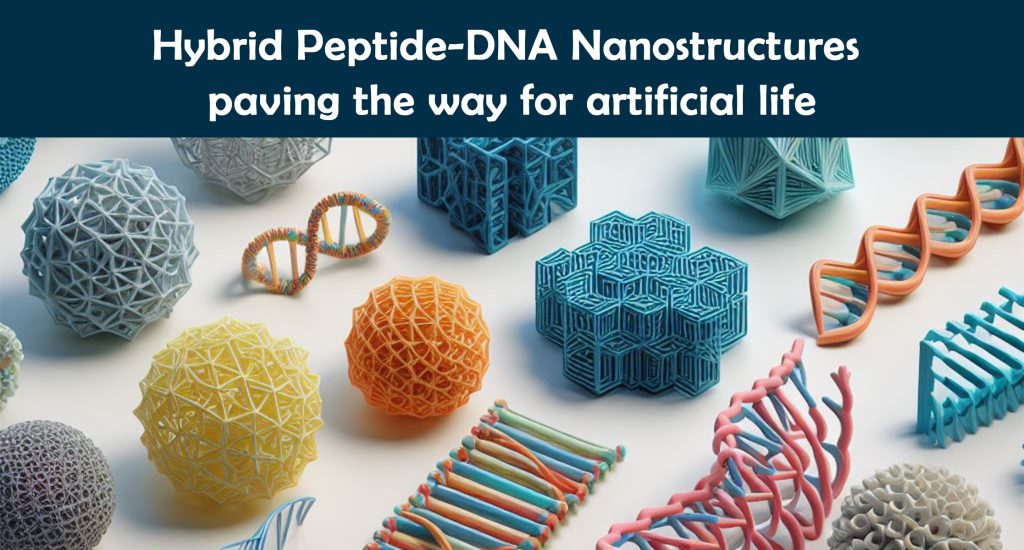
Creating artificial life, a recurring theme in science and literature, holds potential in the fields of viral vaccines and disease treatment. Associate professor Chenguang Lou and Professor Hanbin Mao have pioneered “hybrid peptide-DNA nanostructures” for this purpose. These structures combine DNA’s precise control and peptide technology’s chemical diversity. Recent research has successfully linked three-stranded DNA structures with three-stranded peptide structures, enhancing their collective strengths. Researchers worldwide are also exploring DNA-peptide connections, such as Oxford’s membrane-drilling nanomachine and Arizona State’s self-assembling 2D and 3D structures. The potential for these hybrid nanomachines, viral vaccines, and artificial life forms to revolutionize healthcare is promising, offering new tools for diagnosis and treatment.

Source: https://www.sciencedaily.com/releases/2023/10/231005135616.htm
